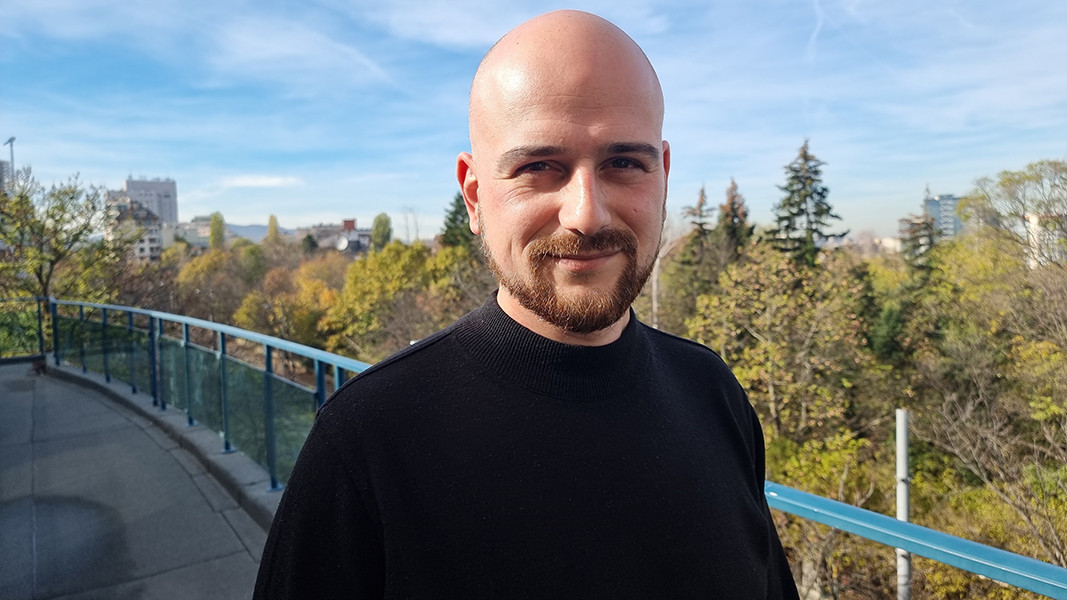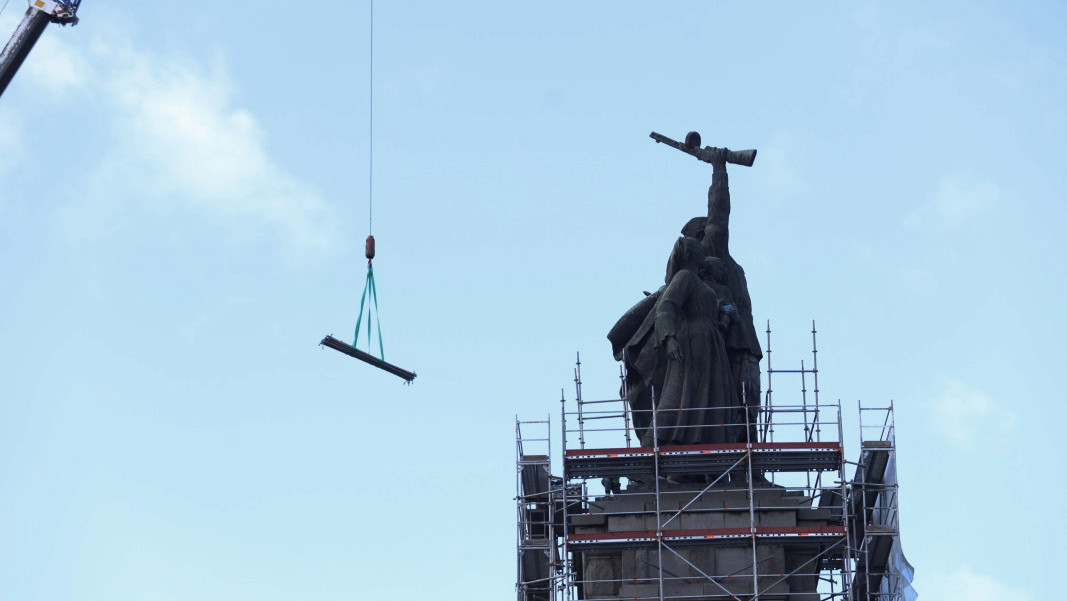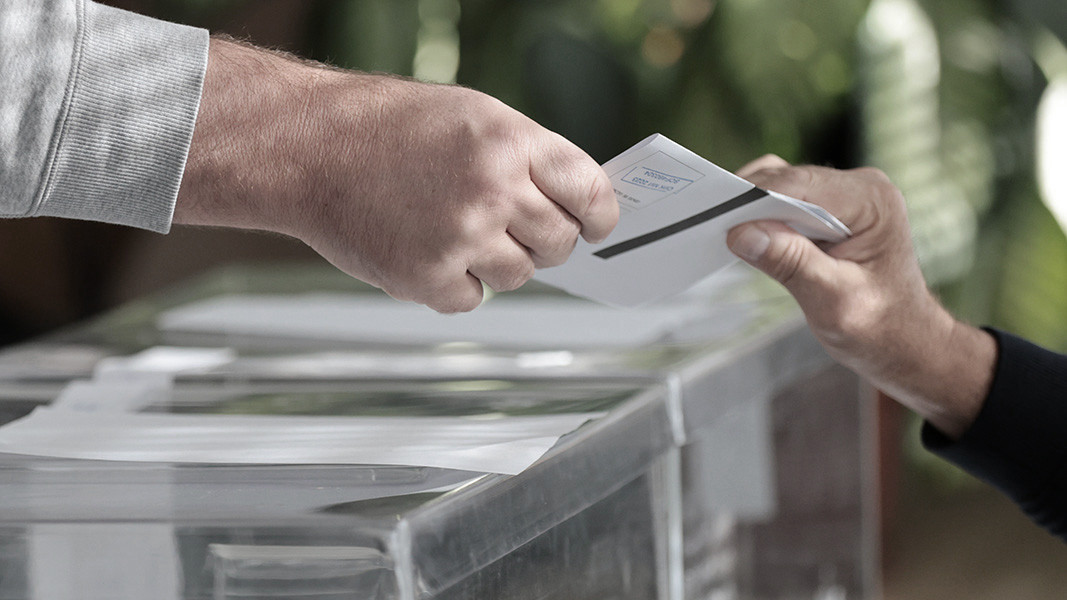Extremely dynamic in political terms, with a sense of infinite tolerance on the part of society for the mistakes of the rulers. This is how year 2023 generally looks through the eyes of political scientists Sergey Petrov and Svetlin Tachev. We witnessed political turnarounds and serious compromises in order to find a way out of the spiral of five consecutive early elections. As a result, political jargon was enriched with descriptive concepts such as "assemblage", "non-coalition" and others.

"In Bulgaria, we have a coalition, which we call a non-coalition, but it functions as a coalition, regardless of the fact that sometimes we see worsening of relations between the parties in it,” political scientist Sergey Petrov has told Radio Bulgaria. “However, the political parties had no other choice, as the voters had shown several times in a row that there was no political entity that can form a cabinet alone... Therefore, this non-coalition will continue to exist until there is some shifting of the political layers."
According to political scientist Svetlin Tachev, MPs Boyko Borisov and Delyan Peevski are some of the political figures for whom this undefined political composition is the most advantageous.

"The current coalition has given them the opportunity to re-legitimize themselves as significant political factors," the analyst says.
Delyan Peevski, sanctioned by the USA under the Global Magnitsky Act, has been recently acting as a kind of mentor to the rulers on a number of topical issues. Political scientist Svetlin Tachev says that this is no accident:
"Peevski's activity is also due to the transformations that are taking place in the Movement for Rights and Freedoms and his growing role in this process. In terms of foreign policy, the goal is taking a more liberal path towards Europe. In terms of internal politics, they strive to open the party to new social groups that can increase their electorate and once again to achieve their role as balancing force in Bulgarian political life."
Another topic is a catalyst for political passions in the outgoing 2023 – the changes to the Constitution. According to political analysts, the attempts of the government in this direction are hasty and poorly thought out.

"The constitution is a basic law and it just outlines the basic principles of a state. However, political forces seem to want to put some of their own ideas there, which is not necessary in my opinion. I don't think that if we really want our judicial system to work more efficiently this should go through changes in the Constitution."
The changes to the Constitution were at the basis of the formation of the “assemblage” and among the needed reforms from the point of view of PP-DB, Svetlin Tachev recalls.
"This way they turned themselves into hostages, trying to legitimize themselves in front of their own electorate. If the changes do not become a fact, they will not have an answer to the question why they entered this government. That is probably why they are in a hurry to adopt the changes before the rotation so that they can show that they have achieved their primary goal."
Accession to Schengen and the Eurozone are two other important priorities of the Bulgarian government. Although each of these goals can be seen as a success for the country, the society’s opinion on them is not unequivocal.

"Of course, this is an imperative step that must happen in order to fulfill our European integration. On the other hand, there is no information campaign and this causes fears in the population, as the government does not seem to be doing enough to distract them," Svetlin Tachev says.
Sergey Petrov remains a supporter of the theoretical accession but mentions some structural problems related to the euro:
"Many people say that we have made a commitment to adopt the euro, but we have not committed to a time frame. There are member states that have not adopted the euro, but their economic indicators are much better than the average for Europe," the analyst comments.
The dismantling of the Monument to the Soviet Army in Sofia is another event that caused serious tensions in Bulgarian society.

"It seems that his monument materializes the division existing at national level,” Petrov says. “I am sure that a large part of the defenders and opponents of the monument do not see it simply as a monument. The terms ‘Russophile’ and ‘Russophobe’ emerged in Bulgarian society immediately after the establishment of the Third Bulgarian Kingdom. They have become entirely political concepts in this country. It is not about sympathy for language, culture, people, traditions, etc., but about support or disapproval of Russian foreign policy. This continues to be a thick dividing line in society."

The local elections held in 2023 had the potential to become a stumbling block for those in power, but GERB managed to keep its positions in local government, while its PP-DB partners managed to win the mayoral seat in Sofia, which was one of their most important goals. However, the municipal council still fails to function effectively as it is led by an acting chairman who is also the oldest municipal councilor. This is reminiscent of a similar situation with the election of the Speaker of the last two National Assemblies.
"Probably, we can expect a similar scenario at local level, as we see that this division makes it difficult to elect a chair of the council, which affects the entire municipality and it cannot function adequately," Svetlin Tachev says.
The open questions of the political 2023 in Bulgaria await their decision in 2024.
English publication: Al. Markov
Photos: BTA, BGNES, bntnews.bg, personal archive
Bulgaria’s Parliament failed to hold a session on October 15. "The next session is tomorrow at 9 a.m.", announced National Assembly Speaker Natalia Kiselova. Only 61 MPs registered for attendance during the first and only attempt to open the..
Yet another disaster, yet another series of analyses and post-hoc actions by the relevant institutions. The devastating flood that hit the resort village of Elenite a week ago, claiming four lives, has led the state to realise that the flooded..
“ The result of the changes in the services is the crushing of inconvenient opponents, ever more aggressive political repression, and the ever more brazen plunder of public resources and private business – about which we will be learning less and less,”..
Bulgaria’s Parliament failed to hold a session on October 15. "The next session is tomorrow at 9 a.m.", announced National Assembly Speaker Natalia..

+359 2 9336 661
